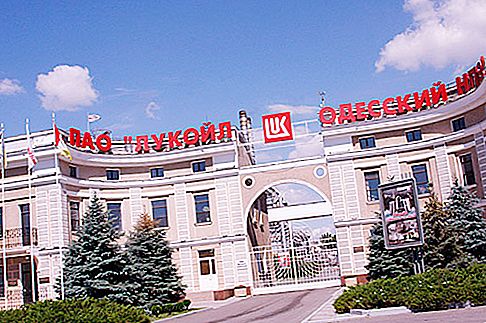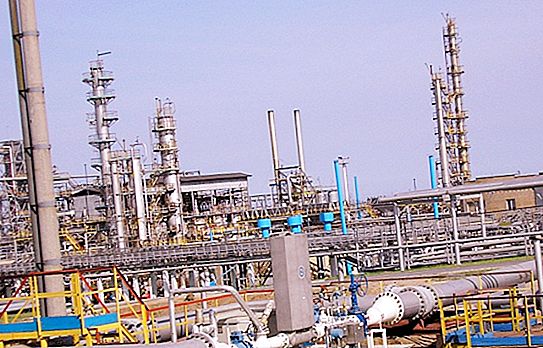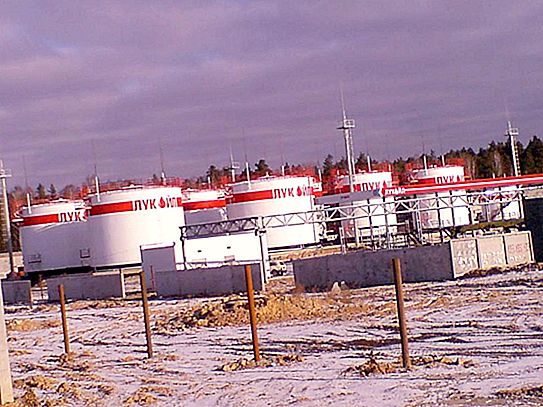Odessa Oil Refinery (oil refinery) has been operating since 1938. When the war began, the plant’s capacity was transferred to the city of Syzran. After a while, in 1949, it was recreated in the same place. Subsequently, it was repeatedly equipped with new equipment, sewage treatment plants were strengthened, since industrial waste was then discharged into the Black Sea (until the 70s of the 20th century), modernized, increased capacities, and, accordingly, expanded production.
Odessa Oil Refinery is located at: 1/1 Shkodova Gora Street, Odessa, Ukraine, and specializes in the production of:
- gasoline grades A-98, A-95, A-92, A-80;
- diesel fuel;
- liquefied gas;
- sulfur;
- fuel oil;
- vacuum gas oil;
- jet fuel;
- petroleum bitumen road, construction, roofing;
The history of the merger of Lukoil and Odessa Oil Refinery
In the mid-90s, Lukoil began supplying black gold to the enterprise. In 1999, the company merged with Synthesis Oil to jointly repurchase 51.9% of the refinery. In the spring of next year, the Russian company acquired another 25% stake in the Odessa Refinery. At this point, the issue of the withdrawal of Synthesis Oil from the alliance with the subsequent transfer of their share to Lukoil was almost resolved.

As a result, in mid-2000, the largest Russian oil player owned about 86% of the shares of the Ukrainian enterprise, which at that time cost about $ 7 million, and then Lukoil-Odessa Oil Refinery OJSC was created.
Factory Development
In 2001, the new leadership set the task of reaching the European level of work and equipment in 4 years. Investments during this time amounted to about 73 million dollars. This made it possible to increase production volumes, they began to produce fuel according to Euro-3 standard, and by 2004 diesel fuel according to Euro-4 standards. The enterprise paid huge taxes to Ukraine annually, and contributed to improving the country's economic condition.

The next ten years are characterized by periodic ups and downs. The reason for this is largely the instability of the economy and changing conditions in the Ukrainian oil market. In particular, there is information that the administration of Viktor Fedorovich Yanukovych, who came to power at that time, contributed to the crisis of the enterprise.
Transfer of ownership
As a result, in the fall of 2010, Vagit Yusufovich Alekperov, the head of Lukoil, said that the enterprise was unprofitable and incurred big losses for the company. It became unprofitable to buy raw materials - the supplier radically changed the conditions and oil supplies to the refineries were suspended, they began to prepare for the conservation of production.
The Odessa refinery stayed in this position of uncertainty until February 2013, when the local GC VETEK (East European Fuel and Energy Company) showed interest in the plant. The negotiations ended with the signing of agreements on the transfer of 99.6% of the shares to the Ukrainian side under the leadership of Sergey Vitalievich Kurchenko, a young businessman close to the ex-president. In the summer of 2013, this agreement came into effect.

It is believed that Kurchenko knew that a new customs decree on protective duties would soon come into force, freeing the country's market from foreign competitors, thereby refineries would again be profitable.
The collapse of the enterprise
Further life of the Odessa refinery was complicated by the next change of leadership of the country. Law enforcement authorities began to suspect the management of VETEK of laundering illegal funds and of participating in the illegal export of oil. The company's management was put on the wanted list.
The court decision ordered the removal of oil and oil products from the enterprise for subsequent transfer to the state-owned company Ukrtransnaftaprodukt for sale in the near future.




